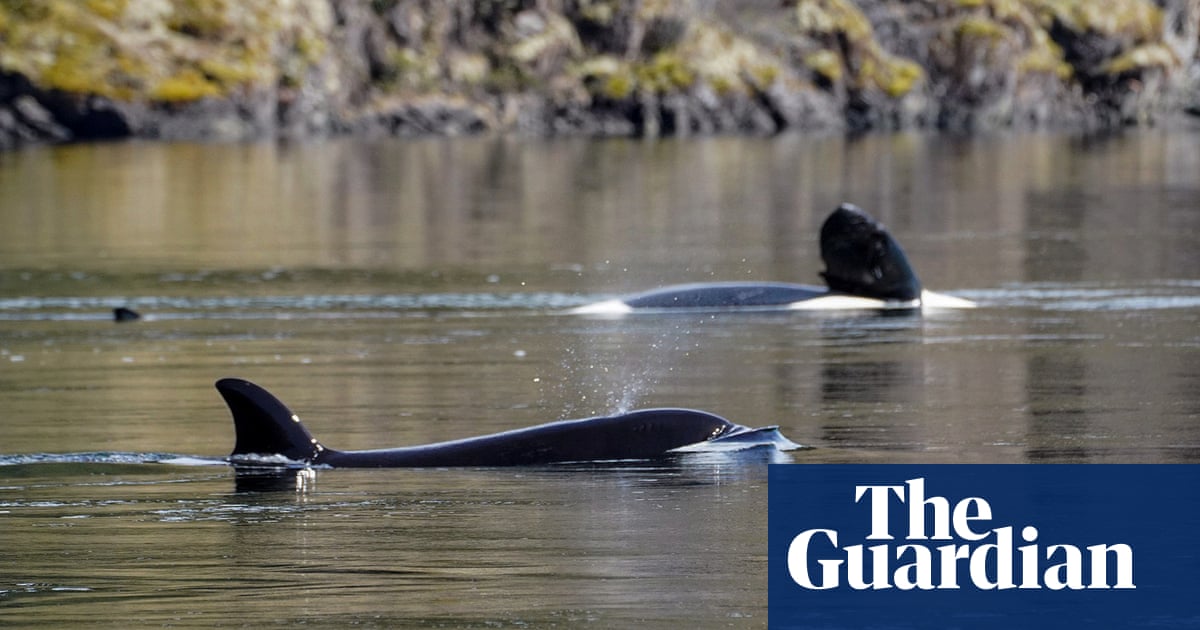Last weekend, residents of a coastal community along the north-western reaches of Vancouver Island spotted an orca trapped on shore. They worked for hours, unsuccessfully, to keep her alive. But they realised that with considerable luck, her orphaned calf might be saved. With each passing day, as kʷiisaḥiʔis grows more tired, the community is working alongside federal fisheries staff and conservation groups in a unified hope: that an unlikely rescue is possible and a broken family may be reunited.
This is the best summary I could come up with:
As a two-year-old orca calf circled a lagoon off the west coast of Canada on Monday, she heard a comforting sound resonating through the unfamiliar place in which she found herself: the clicks and chirps of her great-aunt.
But the calf, named kʷiisaḥiʔis (pronounced kwee-sahay-is, which roughly translates as Brave Little Hunter) by local First Nations people, could not locate another whale in the shallow waters.
With each passing day, as kʷiisaḥiʔis grows more tired, the community is working alongside federal fisheries staff and conservation groups in a unified hope: that an unlikely rescue is possible and a broken family may be reunited.
Members of Ehattesaht First Nation gently draped her black and white body with cedar boughs and after consultation with elders, performed a ceremony to release her spirit.
The feelings of hope may not be misguided: in 2013 a lone orca calf, Sam, was discovered in a narrow bay off the coast of Aristazabal Island – nearly 200 miles north of where kʷiisaḥiʔis is trapped.
In order to locate possible family members, teams are drawing on a network of coastal First Nations and whale watching companies to scour the waters of the Pacific.
The original article contains 1,220 words, the summary contains 195 words. Saved 84%. I’m a bot and I’m open source!
It’s probably trying to just get away from the plastic water


